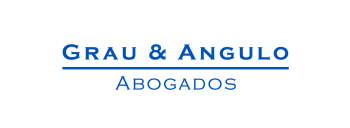On 8 April 2019 Valencia Criminal Court Number 15 convicted the managers of a company operating in the souvenir industry for a crime against IP rights – namely, designs – in accordance with Article 273 of the Criminal Code.
On receipt of a criminal complaint from Barcino and Chic Selection, the Spanish police conducted a raid which resulted in the seizure of 20,176 IP-infringing souvenirs (keyrings and bottle openers).
The private prosecution (ie, Barcino and Chic Selection) and the public prosecutor filed writs of accusation against the managers of both the company where the goods had been seized and the company which had sold the souvenirs (the defendants).
Valencia Criminal Court Number 15 issued criminal sentences to the managers of the company which had sold the products (the infringers), as the objective and subjective elements of Article 273 of the Criminal Code had been met.
Thus, the court rejected the defendants' allegations of defencelessness regarding the admission of documentary evidence – namely, the registered designs of the various models of keyring and bottle opener at issue. The defendants alleged that the criminal complaint had concerned six registered designs, but 18 models of keyring and one model of bottle opener had been finally seized by the police.
The court rejected the defendants' allegations on the basis that the infringers had already known about the documentary evidence during the court proceedings, as the private prosecution had, in their writs, named the different product models at issue and provided a brief description and the units per model for each.
In any case, if more product models had been seized than those initially reported, this would have been because specialised personnel from the complainant companies had assisted the police during the raid. Therefore, it was unsurprising that more counterfeit souvenirs had been identified than those which had been known about when the criminal complaint was filed.
The court also rejected the defendants' allegation regarding the time-barred period for the crime, as it was based solely on a sale that had taken place less than five years before the infringers were cross-examined during the proceedings.
As for the objective elements of the crime, the court relied on both the expert report and its own assessment to examine the similarities between the evidence and the original goods. It ruled that there was no doubt as to the level of similarity between the products and pointed out that consumers could easily confuse them if they were displayed in a shop window.
The court also highlighted the fact that the designs had been duly registered both at the time of the raid and when the counterfeit goods had been sold. It held that there should be no doubt as to the originality of the designs registered in 2008 and 2009, as no evidence has been provided as to whether any opposition or action had been brought against the designs.
As for the subjective element of the crime, the court noted that in 2009 another raid had been conducted at the infringers' premises, which had culminated in a condemnatory sentence for the possession of goods which infringed the registered designs of Chic Selection and another company with the clear intention to sell them.
In light of the above, the court held that when the suppliers in the case at hand had sold the keyrings and bottle openers, they had been fully aware of the registered IP rights for the goods in favour of third parties. As such, the subjective criteria of Article 273 of the Criminal Code had been met.
As regards the previous condemnatory sentence against the infringers, the court affirmed there was no claim preclusion. Whereas on the first occasion the infringers had been sentenced for mere possession of counterfeit goods (with the intent to sell them), in the case at hand they had been sentenced for the effective sale to a company of goods which infringed the registered designs of Chic Selection and Barcino. Even if some of the models were the same, the seized keyrings were not. Further, in any case, the first sentence did not constitute a licence to sell fake keyrings.
As regards the manager of the company which had purchased the products, the court ruled that there was no evidence that he had known, on acquisition of the products, that the goods infringed registered designs and had not been manufactured with due authorisation.
The managers of the company which had sold the counterfeit goods received 10-month prison sentences and fines. In addition, the counterfeit goods were seized, confiscated and destroyed, and both defendants were ordered to pay part of the legal costs and compensation to both companies for the damages caused, bearing in mind the profits that the plaintiffs' would have gained from selling the goods if these had been sold by them or authorised third parties.
The defendants have appealed the decision.
This article was first published by the International Law Office, a premium online legal update service for major companies and law firms worldwide. Register for a free subscription.



